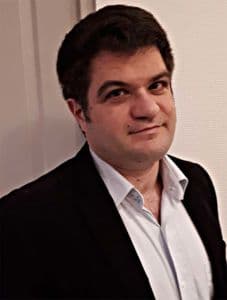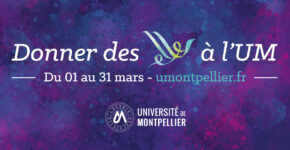Conference: “The T Ray: From Science Fiction to the Study of the Living World” Thursdays at UM
This event has passed!
Thursday, April 26, 2018, from 6:00 p.m. to 8:00 p.m.
Institute of Botany – University of Montpellier
Tram line 1 – Albert 1er stop
 Lecture hosted by Kenneth Maussang, Doctor of Physical Sciences, researcher at theInstitute of Electronics and Systems (IES), senior lecturer at the University of Montpellier.
Lecture hosted by Kenneth Maussang, Doctor of Physical Sciences, researcher at theInstitute of Electronics and Systems (IES), senior lecturer at the University of Montpellier.
Seeing through opaque objects is a fantasy that has long been the stuff of science fiction, like Superman and his X-ray vision. While X-rays are used for this purpose, for example at airport security checks, the star of the future is now T-rays (or terahertz radiation).
It had been waiting for over a century, lurking between visible light and radio waves, patiently waiting for technological advances to bring it into the spotlight. The advent of nanotechnology has enabled the development of T-ray sources in numerous research groups, including those at the University of Montpellier, renowned worldwide for their expertise and know-how, leading to the commercialization of their research through the creation of the start-up T-waves. Fabrics and plastics are transparent to T-rays, unlike metals, water, and skin, which block them. Thus, the immodest T-ray camera allows us to "see" the human body through clothing. Now that T-rays have reached maturity, they must be used to illuminate other scientific fields: medical imaging, pollutant detection, security checks, etc.
During this conference, Kenneth Maussang will present terahertz radiation and its recent applications in the scientific and socio-economic worlds. He will also present new topics developed at the University of Montpellier, offering new perspectives in fundamental physics, agronomy, and biology, in order to better understand the mechanisms of life...
UM Thursdays: a unique series of lectures
The University of Montpellier, with its eight faculties, two schools, and six institutes, boasts a wealth of teachers andProfessors a wide variety of fields of study. It wanted to showcase them and make them accessible to as many people as possible by offering a unique series of lectures, with one event per month from October 2017 to May 2018.
